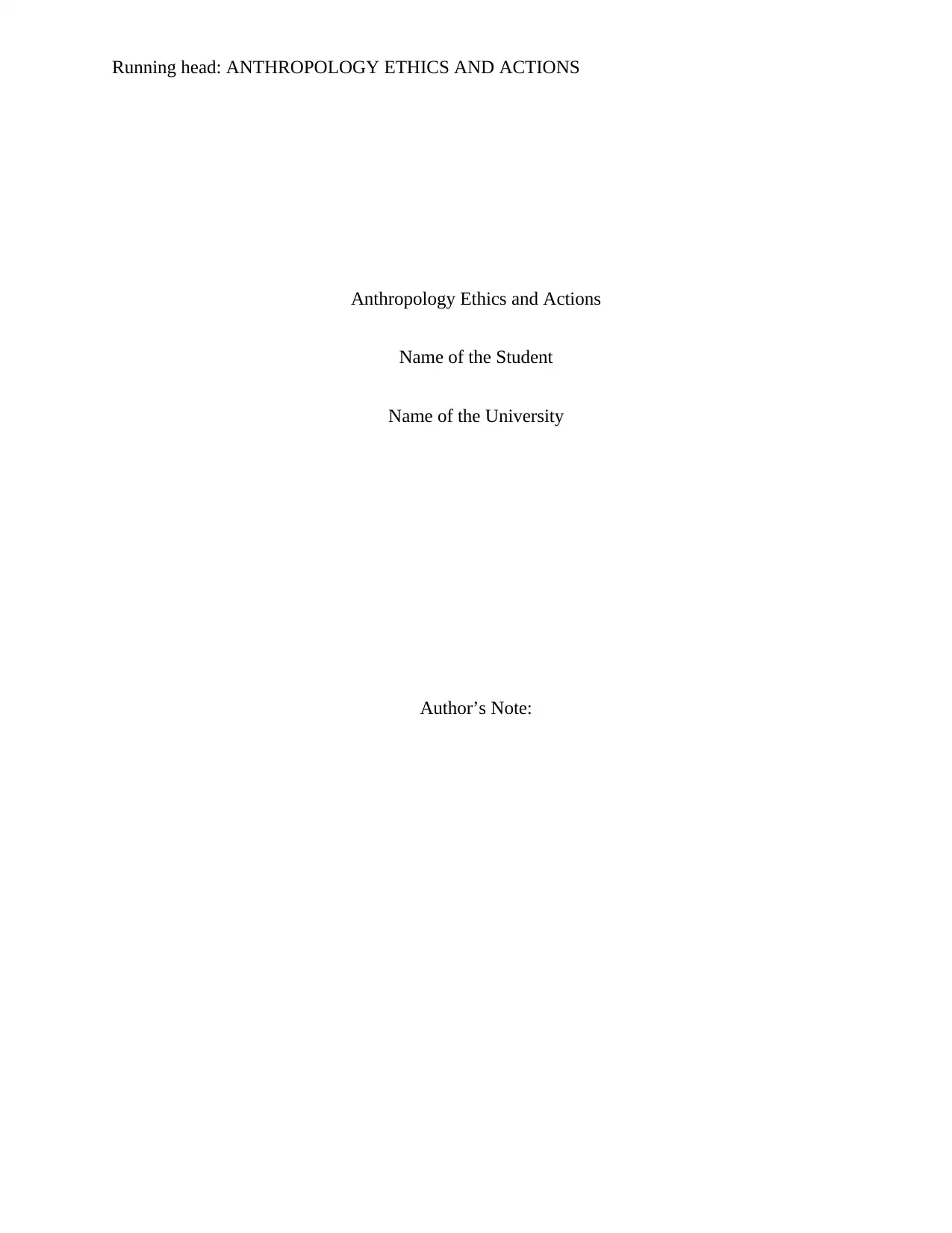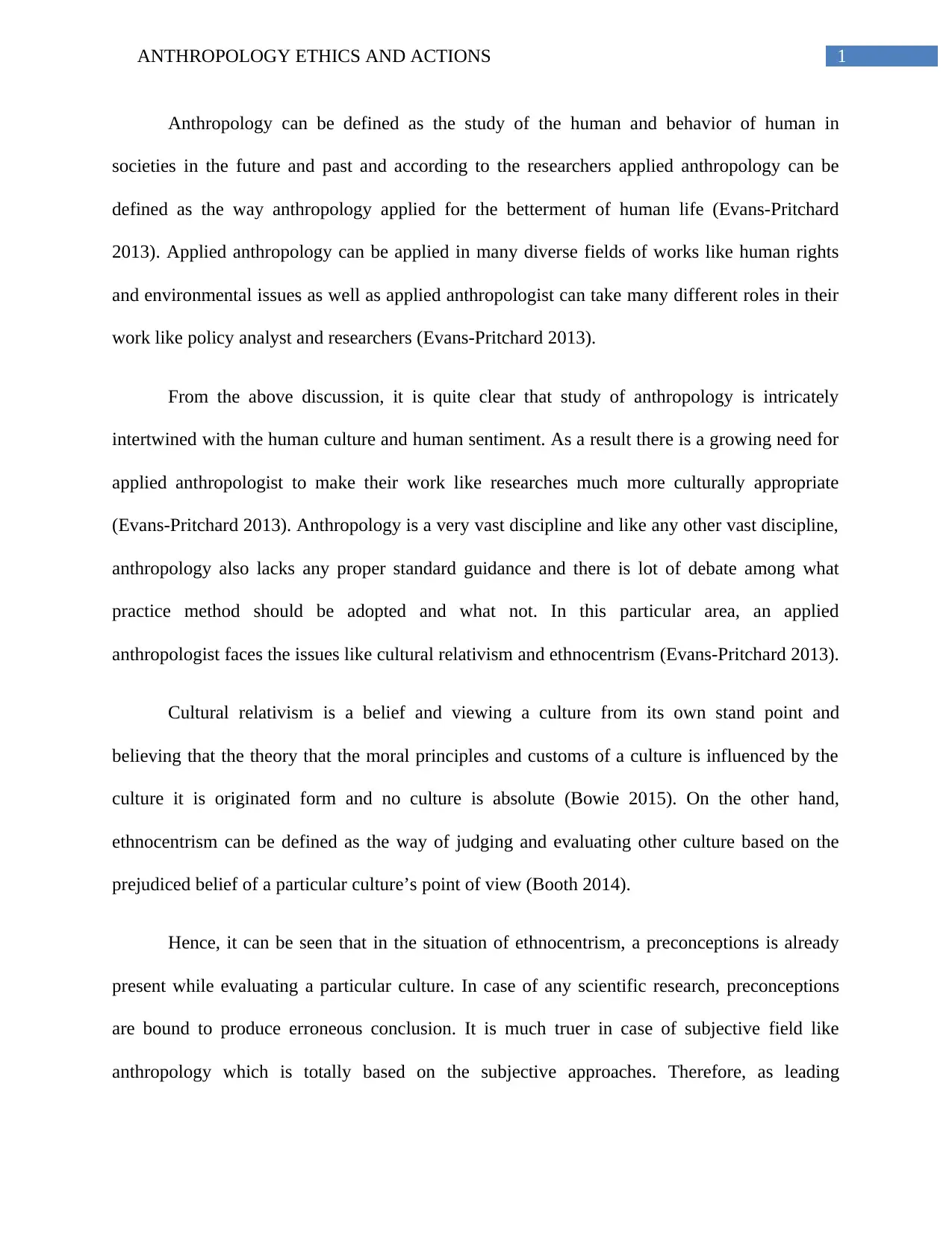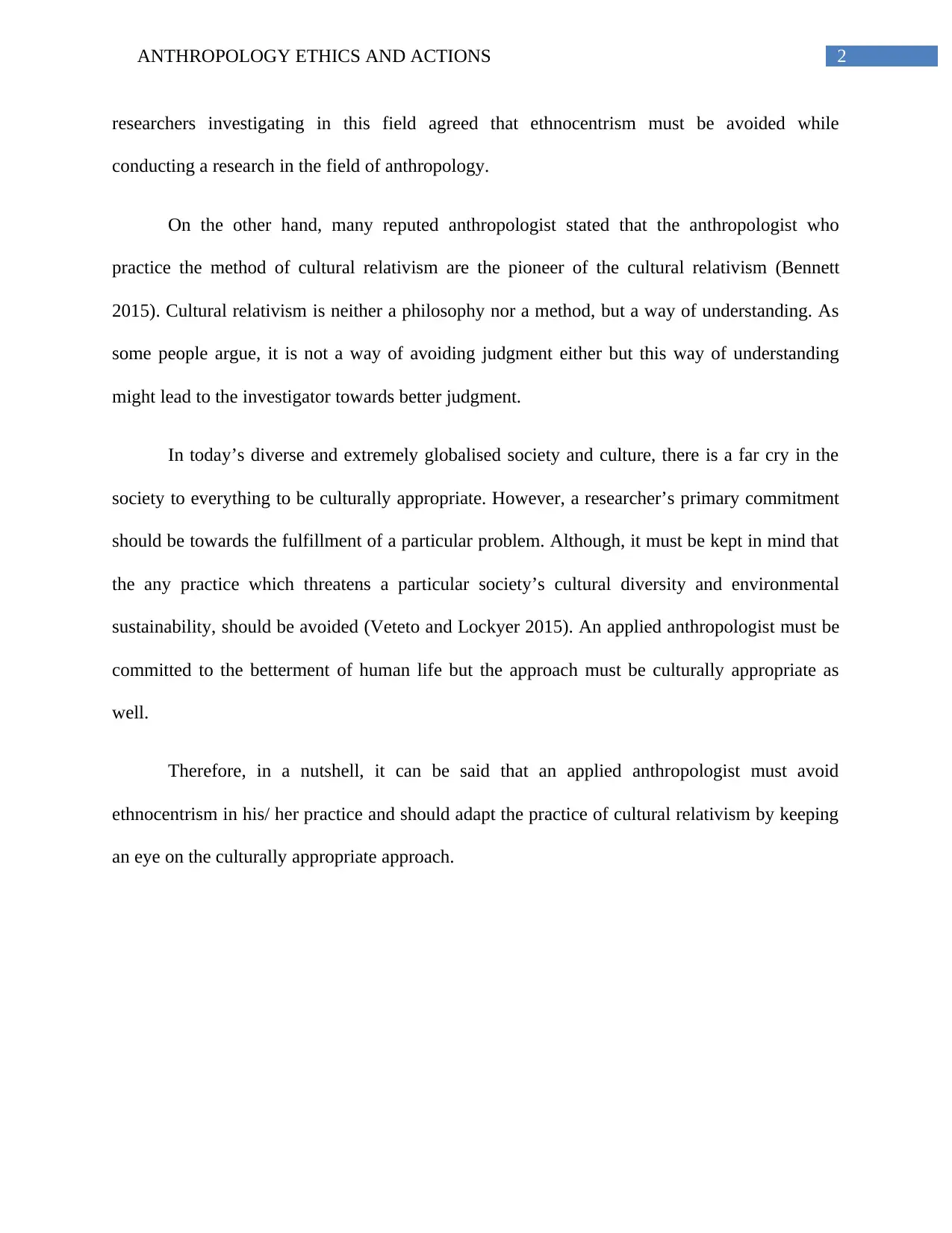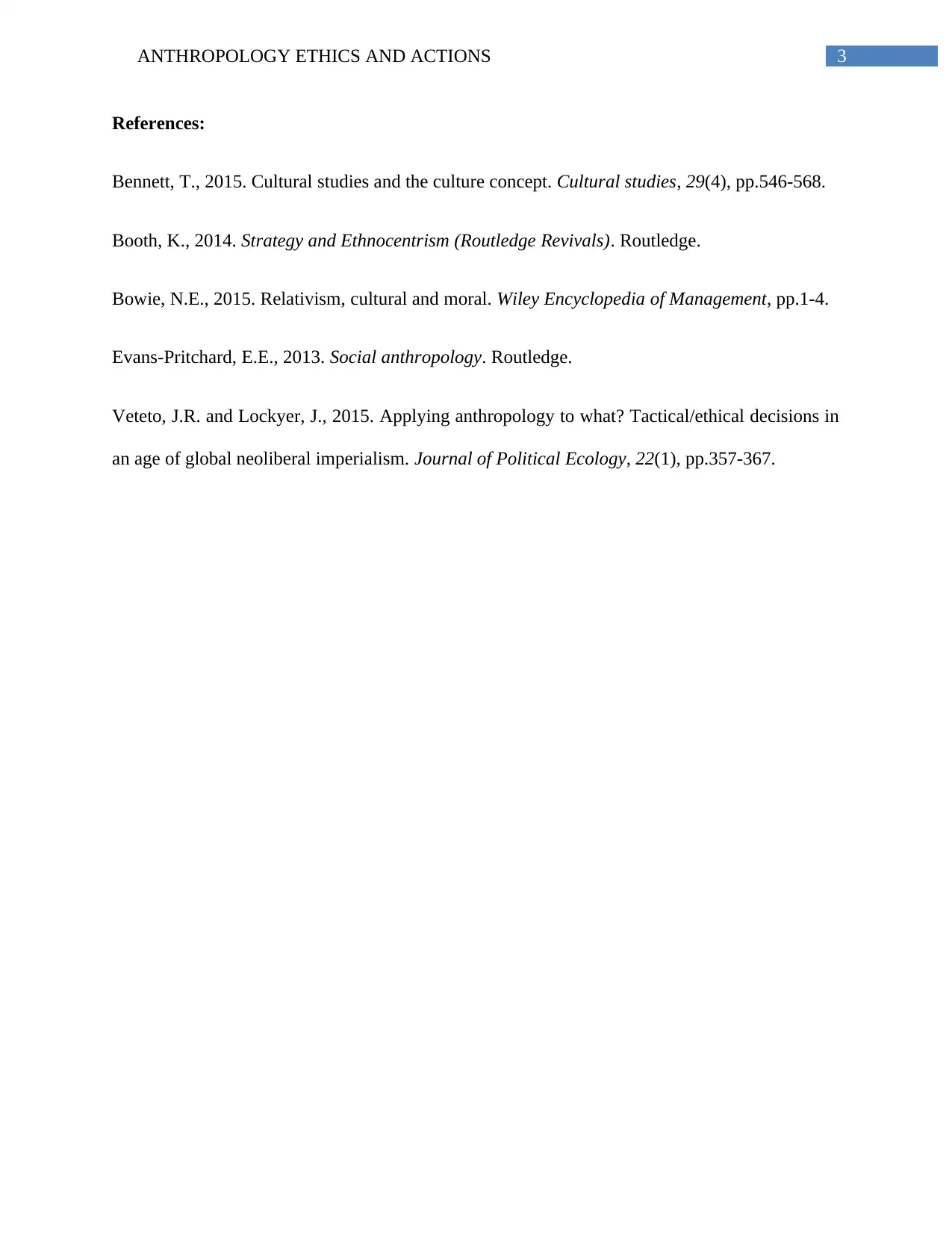ANT2APA - Ethics & Action: Cultural Relativism and Problem Solving
VerifiedAdded on 2023/04/17
|4
|619
|197
Essay
AI Summary
This essay discusses the ethical considerations in applied anthropology, specifically focusing on the tension between adhering to cultural relativism and the commitment to solving problems and improving the lives of research participants. It explores the concepts of cultural relativism and ethnocentrism, arguing that while ethnocentrism should be avoided due to its potential for biased conclusions, cultural relativism provides a valuable framework for understanding different cultures. The essay suggests that applied anthropologists should strive for culturally appropriate approaches in their work, avoiding practices that threaten cultural diversity and environmental sustainability, ultimately aiming to improve human life while respecting cultural contexts. This essay is available on Desklib, where students can find a variety of academic resources.
1 out of 4











![[object Object]](/_next/static/media/star-bottom.7253800d.svg)